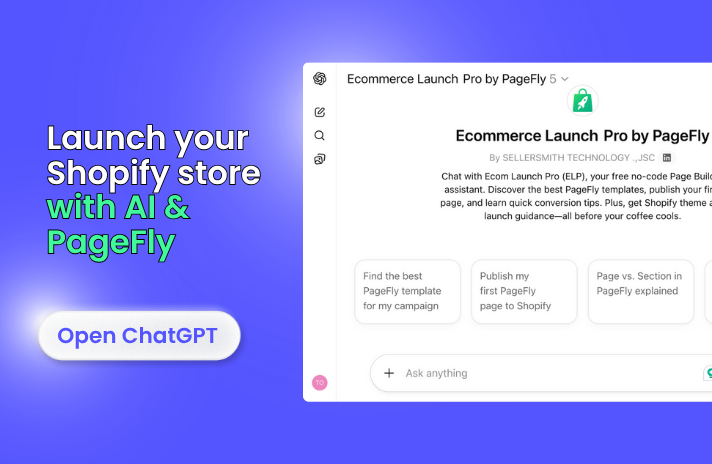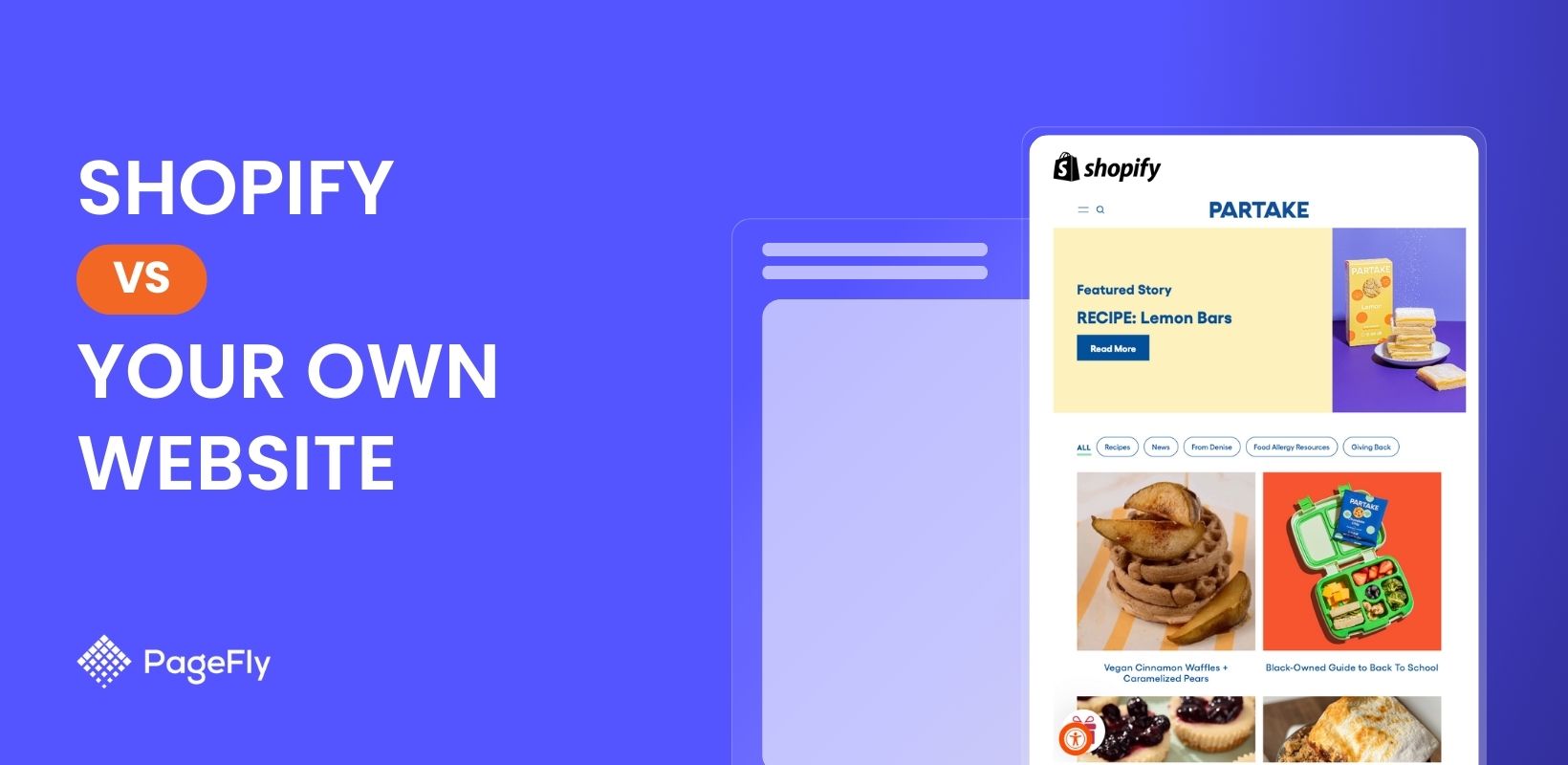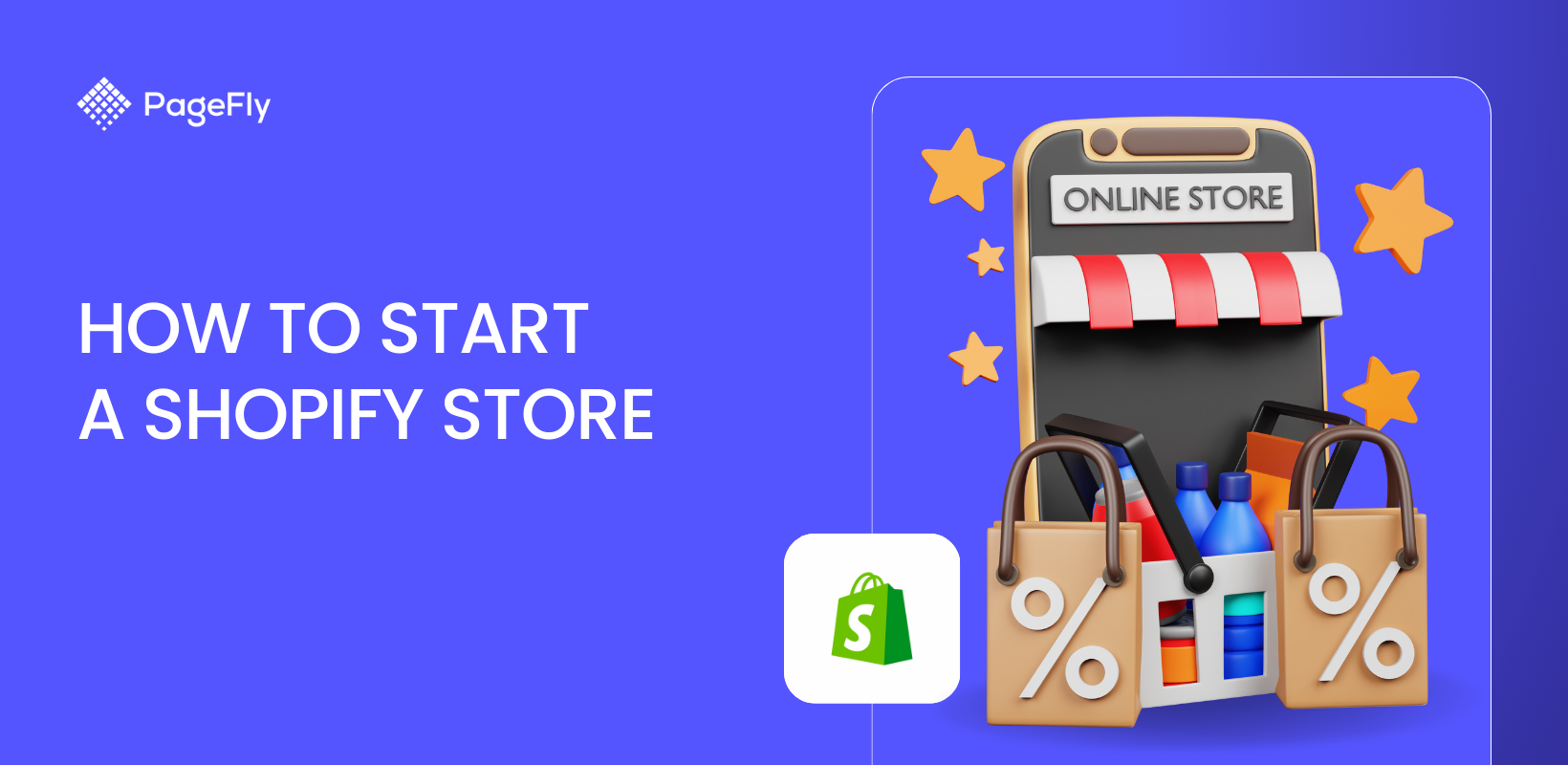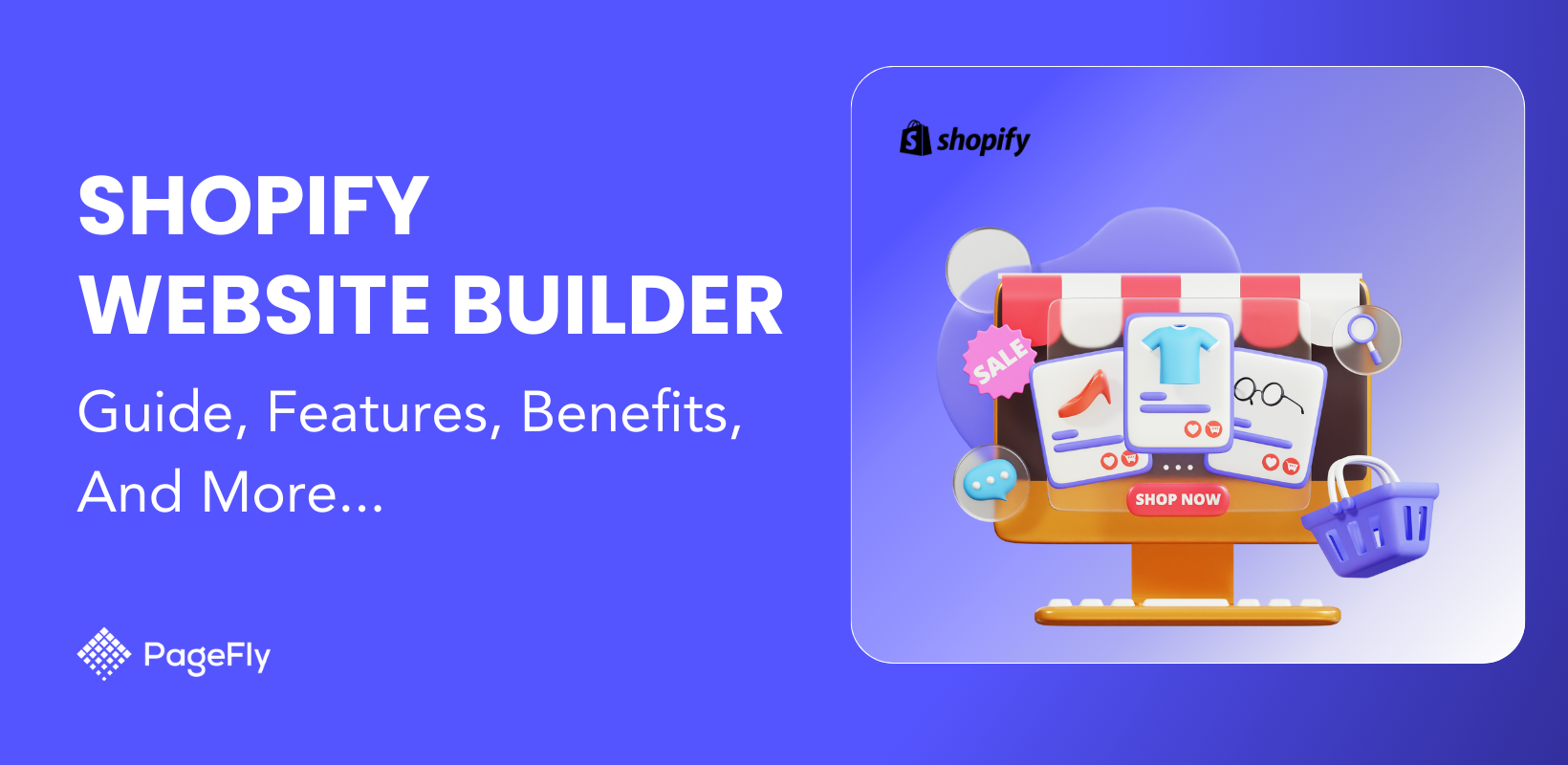If you haven’t joined the eCommerce playground yet, it is the time to start the idea of an online business. eCommerce is turning it into an opportunity. There’s proof, too; a nearly 150% increase in the number of online retail orders in the U.S and Canada (source: forbes.com).
Now,
You may ask: “Well, okay… how can I build an online store?”
When it comes to this subject, there have been so many discussions between using Shopify vs having one's own website. Both have their pros and cons, and also plenty of elements you should pay attention to before making a final investment.
With that being said, in this article we are going to help identify which solution is most suitable for you personally when running your store online.
The Key Difference Between Shopify Website & Others
The biggest difference between the two comes from a website's main purpose.
Shopify is a SaaS solution, which is designed to help merchants build an eCommerce store. In its recent Economic Impact Report, there are more than a million businesses, at the moment, built on this hyper popular platform.

Meanwhile, with your own website, you can use it for selling something, writing blogs, providing entertainment, etc.
However, to make it easier for custom website vs Shopify comparison, we are just going to focus on the eCommerce perspective to help you make an informed decision on the online business journey on your horizon.
Comparison: Shopify vs Own Website

The ease to start with
For almost everyone, it's painless to start your store with Shopify vs building your own website. Here are some of the reasons why:
Domain and hosting availability - With Shopify, merchants don’t have to worry about buying a new domain or finding a hosting provider. You can have a free .myshopify.com domain or buy a custom one. It is totally your choice.

If you create your own store with a self-hosted solution, you need a web developer and to seek out hosting and domain services like Bluehost or GoDaddy.
Coding knowledge requirement - Merchants can build their store from scratch easily without having any knowledge of coding with Shopify. It provides you back-end functionality to create your store step-by-step.

In contrast, having a custom website means that you need a certain amount of technical knowledge (if not, you need a skillful development team or to hire a developer that can help with the website setup).
CMS (Content Management System) platform - Thanks to the pre-built eCommerce templates, merchants can change their store look anytime with Shopify. It also gives you a dedicated analytics dashboard to present you with data that can inform any future marketing strategies.
When making your own website, you should consider setting up a CMS for managing your blog and website. In addition, to customize your online store, you may need to install a plugin with eCommerce functionality. For example, a vendor using WordPress to create their site might integrate with WooCommerce (a WordPress plugin) to get the full package of eCommerce features.

Read More:
- Shopify Review: An 100% Unbiased Review From Inside (Updated)
- Shopify vs Amazon: In-depth Comparison and Integration Tutorial
How long to build an online store, Shopify vs own website?
Talking about time-saving, Shopify is still the winner this time.
With just a couple of steps, merchants can easily open their stores on Shopify. Also, Shopify offers a 3-day free trial then Pay $1 per month within first month, so that people can play around with the platform and get a good understanding of it before making a final decision.
Check out our brief tutorial on Shopify's Free Trial below:
For your own website, it will take a considerable amount of time to get things done before running your store. You will have to spend time finding a proper domain and hosting provider, calculating fees and costs for web developers, and considering SSL installation. Just one small mistake could cause your website to collapse, so the process can be tough at first. When you install an SSL certificate on your website, it could be any popular cert like AlphaSSL wildcard, or Comodo PositiveSSL wildcard as we assume here that you are running an eCommerce store. You can however install any other SSL certificate like single domain or multi domain on your website.
Does Shopify create a website for you?
Yes, it does. Think of Shopify as an "all-in-one" solution to help you build an online store and kickstart your online business. It's very user-friendly, eliminating much of the technical hassle, allowing you to concentrate on your business. One of the main things I appreciate about Shopify, compared to having your own website, is that it takes care of three essential components: domain, hosting, and security.
Theme and web design: Shopify website
Merchants can find a great number of available themes on the Shopify Theme Store to match the style of their desired online presence. The price ranges from free to over $300, and all of the themes are a one-time purchase.
Unsurprisingly, Shopify themes are tailor-made for eCommerce purposes. Sellers can benefit from the full list of responsive, speed-optimizing, and mobile-friendly web layout.

On the other hand, if you decide to create a custom store instead of a Shopify website, you’ll spend more time and effort to find the optimal theme. When researching, make sure that it’s got decent reviews and active users, along with flexibility in store design to adapt to your audience's values.
If you don't have a web designer, there are many huge theme marketplaces where you can find tons of responsive themes with more affordable prices than in the Shopify Theme Store like Themeforest or MOJO.
The great thing about having a personalized store design is that you have unlimited space for customization. It is very flexible, and you can tailor-make the website for higher sales and revenue.
With Shopify, in the long run, if you want an advanced modification, you need to play with the liquid code to get your desired web look. Functionality and options.
Since Shopify is an exclusive eCommerce solution, it provides sellers a plethora of features. Here are some of the outstanding ones:
Fraud analysis: This helps identify counterfeit orders and reduce chargebacks, since Shopify can gather evidence for any disputed charges.
Payment providers: With Shopify you can choose the Shopify Payments feature (with payment methods like Visa, Master Card, Apple Pay, etc.), which is PCI (Payment Card Industry) compliant. Alternatively you can use other payment providers, but you’ll have to pay for transaction fees.
Apps: If you want to add more features or integrate external services to your Shopify store, you can find these plugins in the Shopify App Store, for example, if you want to build a highly customized Shopify, check out PageFly.
With your own website, besides finding a proper platform and software to build the store, you need to consider having reliable payment gateways and choose extensions that fit the best of your eCommerce needs.
Another example is when a seller chooses WordPress to build their website, they might need to install more extensions from WooCommerce to acquire eCommerce functionality.

Third-party services: Custom website vs Shopify
As mentioned above, Shopify supports a huge number of third-party apps which assist with marketing, SEO, inventory tools and heaps more.
Shopify is considered an “all-in-one package" that can offer sellers a great number of eCommerce solutions. If you want to extend your reach, the platform supports sales channels integration (like Amazon or Facebook). Even better, merchants can combine selling online and in-person with Shopify POS.
There are also Shopify Experts who can help merchants from marketing to store setup. Or you can set up your marketing plans from scratch.
With your custom website, the story is different. The process requires a lot of research time and some pretty substantial fees when it comes to finding the best eCommerce plugins/extensions for your online store.
Maintenance and updates: Shopify or custom website
Growing your business is an exercise in persistence, as well as constant maintenance and upgrading. Custom website vs Shopify require different effort of maintenance and updates.
With Shopify, everything is at hand. Merchants' stores will get automatically updated to the latest version and will work flawlessly with any software.
For a custom-built store, sellers have to update their website manually and regularly. Also, if you don't have much technical knowledge, the best way is to have or hire a development team to do that.
In terms of those services, you may have to spend a monthly fee for the necessity of consistent site maintenance.

Credit: wpbuffs.com
When it comes to security, Shopify is once again the champion. It provides an SSL certificate that can protect both you and your customers.
Contrarily, with your own website, you’ll have to pay a certain amount of money to set it up and the process can be frustrating when unidentifiable problems arise.
Customer support: Shopify vs own website
Shopify offers live chat, phone assistance, or email support 24/7. If merchants need more help or information, they can search the online database of the Shopify Help Center.
For educational content on how to grow your store, you can refer to the Shopify Academy, Shopify Blog, or open a discussion in the Shopify Community.
Meanwhile, for your own website, the learning materials can be sourced from Google, YouTube, forums, videos, blogs or tweets, etc. There’s no limit to the range of resources, but the lack of a centralized source means that you’ll need a long time to find what you want.
If you use WooCommerce as an eCommerce solution, they support through tutorial documents only. Also, a minus point for this platform is that they do not provide support through channels like direct email, phone or social media at the moment.
Pricing: Shopify or Custom Website
Shopify offers 3 main plans and 1 Plus subscription. Each plan provides a huge list of features that you can check out here.

Recently, Shopify has updated alternative solutions for merchants to choose from.

Outside of the main plan, you’ll have to consider the price of running third-party apps on your store, as well as one-time-purchase themes and your annual domain subscription.
You can watch this video to learn how to calculate your own costs with Shopify.
Check out Shopify Pricing Calculator.
With a custom website, you need to pay for almost all features individually. This includes domain, web hosting, SSL certificate, custom site design, eCommerce plugins, email marketing, payment processing software and so on.
In the long term, with your own store, there will be other unexpected costs that arise during operation and maintenance. Just a bit of simple math reveals Shopify to be a better solution when it comes to Shopify vs building your own website.
Shopify vs Your Own Website: Which One to Invest in?
If you are a newbie in the eCommerce market and want to find an easy way to get your online store in the shortest time, Shopify is definitely the answer.
However, if you’re an ambitious merchant looking for uniqueness and freedom in customization in the long run, having a custom-built store is a great choice. But remember to find a useful platform that can help with your eCommerce purposes.
As much as we discuss the battle of Shopify vs building your own website, only you will know which is right for you.
Why don’t you first try out Shopify’s free trial to test its interface and build a demo store yourself?












![27 Best Shopify General Stores + Complete Strategy Guide [2025]](http://pagefly.io/cdn/shop/articles/Best_Shopify_General_Stores_2f9d09f2-7c38-4da9-a495-e9f4898ddd68.jpg?v=1757271936&width=1640)





